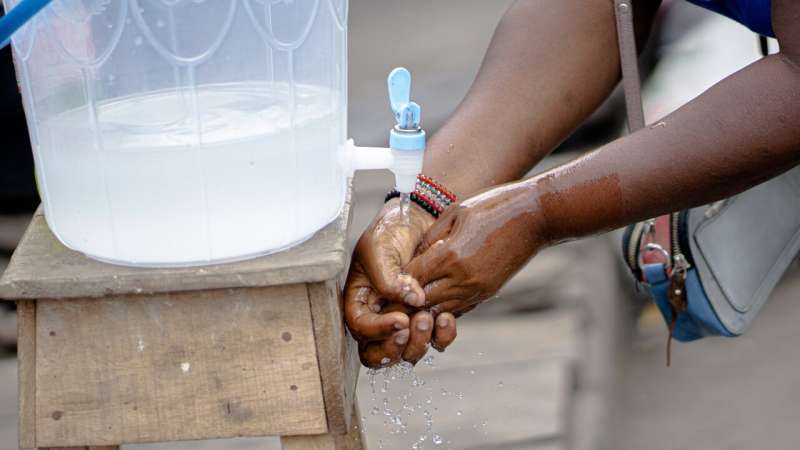Handwashing with soap can reduce cases of acute respiratory infection (ARI) in low- and middle-income countries (LMICs) by as much as 17%, according to a review published in The Lancet.
These findings, from one of the largest known meta-analyses to date on this topic, highlight what the research team call a “missed opportunity” to reduce the burden of respiratory disease.
ARIs are infections of the respiratory tract by viruses or bacteria that affect breathing. They can be categorized into two types, upper (URI) or lower (LRI), depending on the location of infection either above or below the voice box, respectively. Examples of ARIs include the common cold, influenza and pneumonia.
Recently the virus SARS-CoV-2 (responsible for COVID-19, an ARI) led governments worldwide to recommend public health measures including handwashing with soap to combat infection.
While COVID-19 has drawn unprecedented attention, endemic ARIs remain a leading cause of mortality worldwide. Globally, ARIs are responsible for as many as 2.5 million deaths in 2019; with more than 80% of these deaths occurring in low and middle-income countries.
Previous meta-analyses investigated the impact of handwashing with soap on ARIs but analyses have been limited in scope (including only certain study designs), have rarely focused on LMICs where the burden is highest or have examined only viral ARIs.
In this review, the team—drawn from the London School of Hygiene & Tropical Medicine (LSHTM) as well as the World Health Organization and other universities—analyzed 26 studies investigating the impact of interventions promoting handwashing with soap in domestic, school or childcare settings in LMICs on morbidity from ARIs.
These studies included a total of 160,000 participants from across Asia, Africa and Latin America between the early 2000s and May 2021, with eligible interventions ranging from providing adequate facilities and products, to promoting their use via mass media campaigns or door-to-door visits.
Overall, interventions promoting handwashing with soap were responsible for reducing the morbidity, or burden, of ARI by 17% compared to when no handwashing intervention was implicated. Broken down by type of ARI, interventions reduced LRI burden by 22% and URI by 26%, although the team found no evidence for their effect on test-confirmed influenza. No included studies measured a COVID-19 outcome.
The authors emphasize that these findings provide evidence for the importance of more extensively promoting handwashing measures to help reduce the burden of ARIs in LMICs beyond the pandemic context. While the authors only investigated LMICs, by considering previous global estimates they predict that their results are also applicable to high-income countries.
Lead author Dr. Ian Ross, from LSHTM, said, “Today, the UN estimates that 1.8 billion people lack access to a water tap in their home or yard. Our results show what might be achieved with sustained government action to promote handwashing and ensure universal access to the underlying infrastructure of water supply and soap.”
More information:
Ian Ross et al, Effectiveness of handwashing with soap for preventing acute respiratory infections in low-income and middle-income countries: a systematic review and meta-analysis, The Lancet (2023). DOI: 10.1016/S0140-6736(23)00021-1
Citation:
Handwashing during ‘normal times’ can reduce burden of respiratory disease (2023, April 28)
retrieved 28 April 2023
from https://medicalxpress.com/news/2023-04-handwashing-burden-respiratory-disease.html
This document is subject to copyright. Apart from any fair dealing for the purpose of private study or research, no
part may be reproduced without the written permission. The content is provided for information purposes only.


